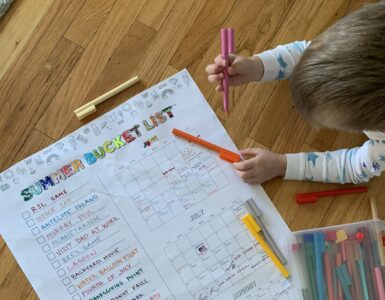We expect a lot of our child’s teacher – but what can we, as parents, do to
help them?
D. Wright, Murray City School District Public Relations Specialist, shares six
ways parents can make life easier for their child’s teacher.
Most school terms or quarters are getting into full swing by February, as we
are back from Winter Breaks and heading towards spring. Teachers are
usually re-vitalized this time of year, and ready to head full-steam ahead
for the home stretch. This is a great time to re-evaluate what you, as a
parent, can do to throw the full weight of your support behind this
important person(s) in your child’s life.
1. Be prepared – One of the most important things that a
parent can do any time of year, is to help your child be prepared each day
for school. This often involves overseeing homework, but something much
more common, like having lunch ready to go and getting there on time is
always important and something we may have become lax on by this time
of year. Small issues like these can keep your child from being distracted
and allow the teacher to concentrate on teaching rather than personal
problem solving.
2. Volunteering – Maybe getting back in school in the fall and
then through the holidays was about all you could handle. Perhaps this is a
time when you could re-assess what volunteering you might have time for
now. This may also be a time when other erstwhile helpers are wearing out
and a new round of fresh participants would be a welcomed addition to the
classroom, for chaperoning spring field trips, or even for handling some
tasks at home after school hours.
3. Checking on your child’s progress – As basic as this may
sound, by this time of year, both the teacher and the parent may “think”
that all parties have an understanding of any hurdles the student may be
dealing with or facing. This could be a good time to double check and ask
if your child seems to be performing to ability; if there are any class
specific study tips that he/she seems to be missing; confirm classroom
policies and other expectations. Be sure to be aware of any upcoming
school Parent-Teacher conference and make it a priority to attend.
4. For junior high & high school students – In secondary
schools, discussions will be going on about next year’s enrollment
decisions, so this is the time to be aware of course offerings, teacher
choices, extra-curricular interests of your students and specific programs.
This is also a critical time to find out what kind of opportunities there are
at your students as they complete their K-12 education, including Aptitude
Assessment and College exploration.
If your child is college bound, you may want to check with the counseling
center for direction on ACT or SAT testing dates, college scholarship
information and school college recruitment visiting times. If college is not
the priority, there are also CTE (Career Technical Education) programs
offered in many high schools designed to lead to certification or licensure
in a variety of Industry skills such as EMT, Surgical Technician, Certified
Nurse Assistant, Dental Hygienist, and Computer training; fields that a high
school student could potentially be qualified in by graduation.
5. Watch absenteeism – It is so important to NEVER become
complacent about your child’s school attendance, in fact March 14, 2012 is
N.E.S.T. Day – the “No Empty Seats Today” county wide campaign to curb
the ever growing truancy issue in all of our schools. Last year, over 11,000
students participates and increased school attendance by 58.9 percent on
our N.E.S.T. Day! The statistics on how negatively truancy affects student
performance are startling, so support this great effort by doing your best to
get your kids to school on this day – and every day!
If all else fails…just “Ask!” It never hurts to ask if there is anything that you,
as a parent, can do to support the efforts of your child’s teacher. It may be
something as simple as watching for notes to come home in a backpack, to
monitoring your child’s assignment planner, or needs that the teacher may
have for volunteers or chaperones. Be involved, tuned in and pro-active,
and always remember…YOU are YOUR CHILD’S most important advocate!















Add comment